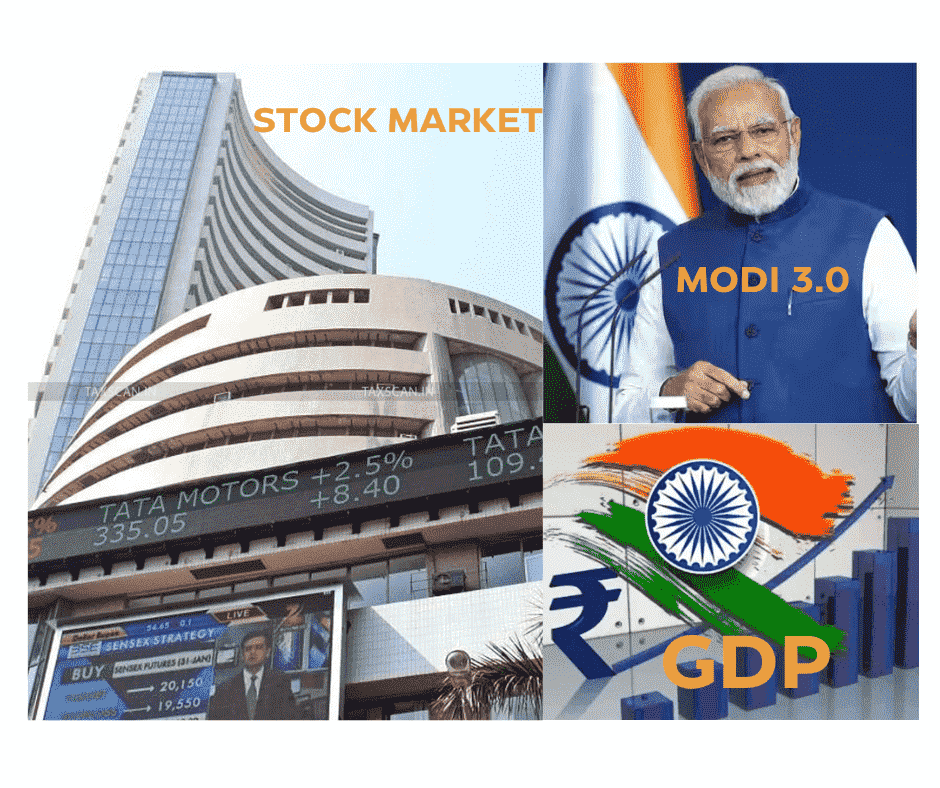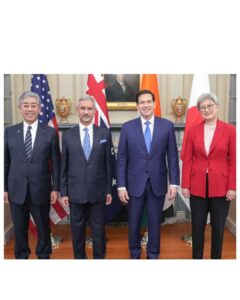
The recent Lok Sabha elections in India have resulted in a significant political shift. The Bharatiya Janata Party (BJP), which has enjoyed a robust majority in the past two terms, has secured 240 seats, falling short of the 272 required for a clear majority. The National Democratic Alliance (NDA), a coalition led by the BJP, managed to win 292 seats, enabling it to form the government but highlighting the necessity of coalition dynamics. This election outcome has stirred discussions on the future trajectory of the Indian economy, considering the coalition’s potential impact on policy-making, economic reforms, and investor sentiment.
Coalition Dynamics and Economic Policy
Coalition governments are often characterized by compromises and negotiations among diverse political partners. The NDA, now reliant on its coalition allies more than ever, will need to address varied interests and demands, potentially leading to a more inclusive but slower decision-making process.
Policy Continuity and Reforms: The BJP, known for its pro-business stance and reform-oriented agenda, will likely strive to continue its economic policies. However, accommodating coalition partners’ views might dilute some of the bold reforms. Major economic reforms, such as labor laws, land acquisition policies, and the privatization of public sector enterprises, could face delays or modifications to gain broader consensus within the coalition.
Fiscal Management: Managing fiscal discipline while catering to the coalition partners’ demands could pose a significant challenge. There might be increased pressure to allocate more funds for populist measures, subsidies, and regional development projects, impacting the fiscal deficit and public debt levels.
Investor Sentiment and Market Response
Investor confidence is crucial for economic growth, and political stability plays a vital role in shaping it. The election outcome, while ensuring continuity with the NDA in power, introduces an element of uncertainty due to the coalition nature of the government.
In the short term, markets might experience volatility as investors react to the new political dynamics. Concerns about the government’s ability to implement reforms swiftly and efficiently could lead to cautious market behavior.
India has been a favored destination for FDI, thanks to its large market size and reformist agenda. The new coalition government will need to reassure foreign investors of its commitment to maintaining a conducive business environment. Clear and consistent policy communication will be key to sustaining and attracting FDI inflows.
Economic Growth and Development
The Indian economy, recovering from the disruptions caused by the COVID-19 pandemic, is at a crucial juncture. The coalition government’s approach to economic growth and development will significantly influence the country’s recovery trajectory.
Infrastructure Development: Infrastructure development is likely to remain a priority, given its importance for long-term growth. The government may continue to focus on initiatives like the National Infrastructure Pipeline (NIP) and the Gati Shakti plan, aiming to improve connectivity and boost economic activity. However, funding and execution may require deft handling to balance coalition interests.
Agriculture and Rural Economy: With several coalition partners representing rural constituencies, there may be a renewed emphasis on agricultural policies and rural development. Addressing agrarian distress, improving farm incomes, and investing in rural infrastructure could become focal points of the economic agenda.
Social Welfare Programs: The coalition government’s inclusive approach may lead to an expansion of social welfare programs. Enhanced spending on healthcare, education, and social security can contribute to human capital development, albeit with implications for fiscal prudence.
Global Trade and Geopolitical Relations
India’s geopolitical stance and trade policies are crucial for its economic prospects. The coalition government will need to navigate complex international dynamics while promoting India’s trade interests.
Trade Agreements: Pursuing free trade agreements (FTAs) and enhancing bilateral trade relations will be essential for boosting exports. The government’s ability to negotiate favorable terms and protect domestic industries will be tested.
Geopolitical Strategy: India’s strategic positioning in global geopolitics, especially concerning China and the United States, will influence foreign policy and economic decisions. Maintaining a balance between strategic autonomy and economic partnerships will be crucial.
Global Perspectives on India’s Economy Post 2024 Lok Sabha Election
Nomura:
“We do not expect any slip of the interim budget target of 5.1% of GDP, but if the government deems reflationary policies as a political necessity, then that could mean slower consolidation. Supply-side reforms are likely to continue, while factor market reforms will remain difficult. We do not expect a material impact on monetary policy,” Nomura said.
Foreign brokerage firm Nomura has provided an analysis of the Indian economy following the recent Lok Sabha election results, highlighting several key points:
The shift in Government Spending:
Nomura believes that the election results may lead to a shift in the government’s spending priorities. Specifically, there might be a move from capital expenditure (capex), which includes long-term investments in infrastructure and development projects, to revenue expenditure (revex), which covers day-to-day operational costs such as salaries, subsidies, and maintenance. This shift may be driven by immediate political and social needs.
Macroeconomic Prudence:
Despite this potential shift in spending, Nomura does not expect the government to compromise on overall macroeconomic prudence. Macroeconomic prudence refers to the government’s commitment to maintaining stable and sustainable economic policies, such as controlling inflation, managing public debt, and ensuring fiscal discipline.
Budget Targets:
Nomura anticipates that the government will adhere to the interim budget target of maintaining the fiscal deficit at 5.1% of GDP. This target reflects the government’s plan to keep the gap between its expenditures and revenues at a manageable level.
Reflationary Policies and Fiscal Consolidation:
If the government deems reflationary policies—measures intended to stimulate economic growth through increased spending and investment—as politically necessary, this could slow the process of fiscal consolidation. Fiscal consolidation involves reducing the fiscal deficit over time to ensure long-term economic stability.
Continued Reforms:
Nomura expects that supply-side reforms, which aim to increase economic productivity and efficiency (such as improvements in infrastructure, reducing regulatory bottlenecks, and enhancing ease of doing business), will continue. However, reforms in the factor markets (like labour and land reforms) will remain challenging due to political and social complexities.
Monetary Policy:
Nomura does not foresee any significant impact on monetary policy, indicating that interest rates and other monetary tools used by the central bank to control inflation and support economic growth are likely to remain stable.
Overall Economic Direction:
Despite the increased uncertainty in the short term due to the changed political landscape, Nomura maintains that the broader direction of economic reforms and macroeconomic policies will remain consistent. This suggests a steady long-term approach to managing the economy, regardless of the immediate political shifts.
J P Morgan:
Observations from select Consumer Staples companies in the recent period indicate a promising uptick in the recovery of rural demand, signaling a potential resurgence in growth anticipated to manifest in the fiscal year 2025. The Indian Meteorological Department (IMD) has issued forecasts predicting an above-normal monsoon, a boon for agriculture-dependent regions, while the easing of raw material pressures serves as a further catalyst, offering support to profit margins within the sector. Additionally, JPMorgan has noted that valuations for the Consumer Staples sector remain rational, with trading multiples standing at 45 times earnings on a forward price-to-earnings (PE) basis, aligning closely with the sector’s five-year average levels.
“Recent commentary from a few Consumer Staples companies suggests rural demand recovery is picking up and growth will come back in FY25. IMD forecasts an above-normal monsoon and raw material pressures are also abating, which are supportive to margins. Valuations appear reasonable for the sector, trading at 45x on a forward PE basis, near 5-year average levels,” JPMorgan said. “
Morgan Stanley:
Ridham Desai and other analysts at Morgan Stanley have provided an assessment of the economic outlook under the BJP-led NDA government, emphasizing several key points:
Macro Stability as a Priority:
The analysts believe that the NDA government will prioritize maintaining macroeconomic stability. This means that the government is likely to focus on ensuring stable economic conditions, including controlled inflation, fiscal discipline, and sustainable growth. Macro stability is considered essential for long-term economic health and investor confidence.
Continuation of Reforms:
The analysts do not expect any significant slowdown or change in the pace and direction of reforms. They anticipate that the government will continue its reform agenda, focusing primarily on the execution and implementation of existing policies rather than introducing new legislation. This implies a commitment to making sure that previously announced reforms are effectively put into practice to yield the desired economic benefits.
Stock Market Outlook:
In terms of the stock markets, Morgan Stanley’s analysts maintain their medium to long-term positive outlook. Despite short-term fluctuations, they believe the overall market direction remains stable and promising.
Short-term Market Movements:
The Nifty index, a benchmark index of the Indian stock market, had seen gains in the previous month due to increased investor confidence in a BJP majority. However, these gains have recently been reversed. The analysts expect market volatility (both realized and implied) to decrease in the near future, returning to more typical levels after the election-related uncertainty subsides.
Coalition Dynamics:
The note highlights a potential risk that the market has not fully accounted for: the possibility of unresolvable disagreements within the NDA coalition. Such disagreements could impact the government’s ability to implement policies effectively, which in turn could affect economic stability and market performance. The analysts suggest that this risk is not currently reflected in the equity market’s pricing.
Conclusion
The Indian economy, under the new coalition government led by the NDA, faces a mixed bag of opportunities and challenges. The need for policy continuity, efficient fiscal management, and investor confidence will be paramount. While coalition dynamics may slow down some reforms, they could lead to more inclusive and balanced economic policies. The government’s ability to navigate these complexities and effectively implement its agenda will determine the future trajectory of the Indian economy. In this evolving political landscape, stakeholders must stay engaged and adaptive to leverage the potential of one of the world’s most dynamic economies.






